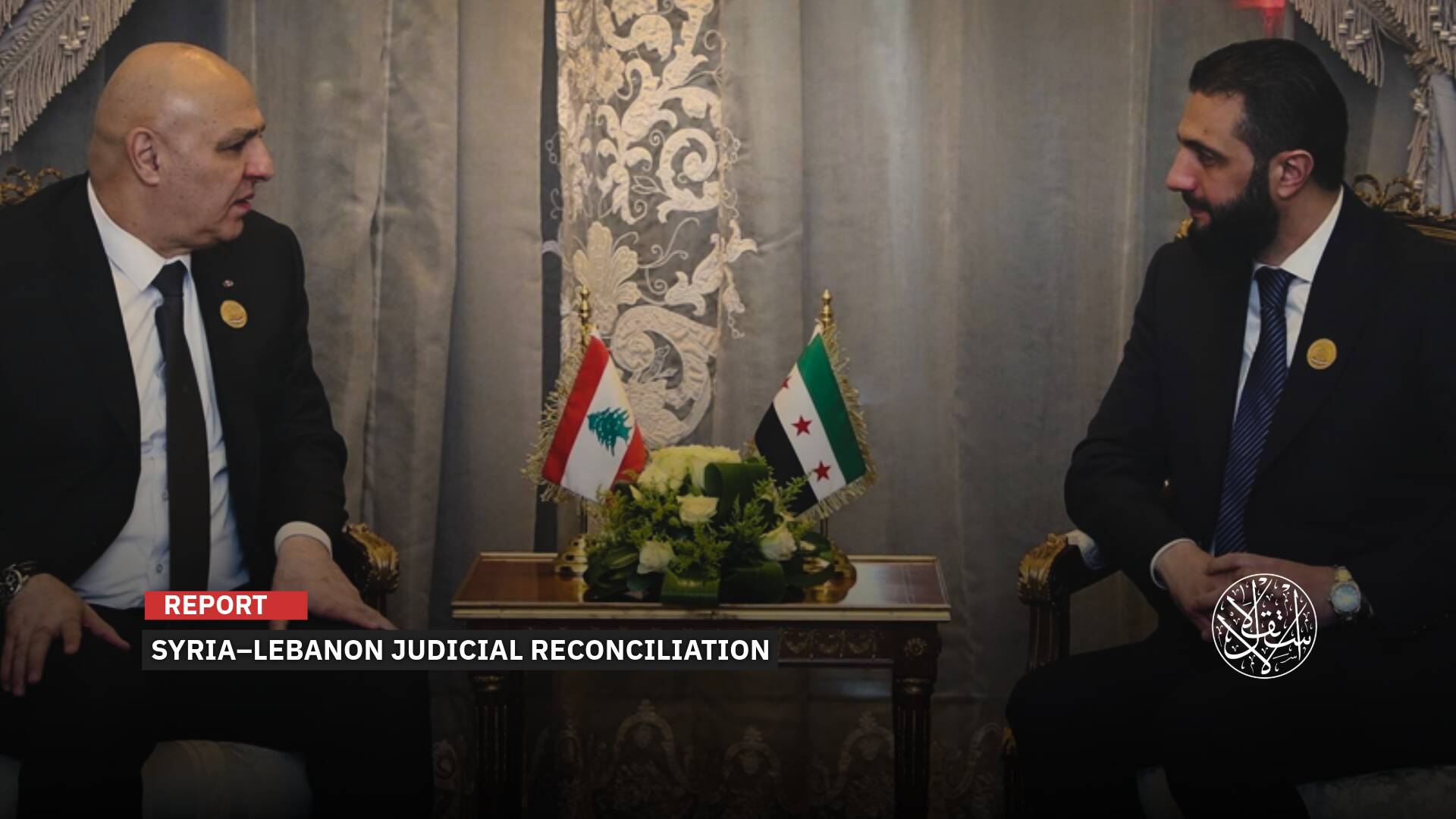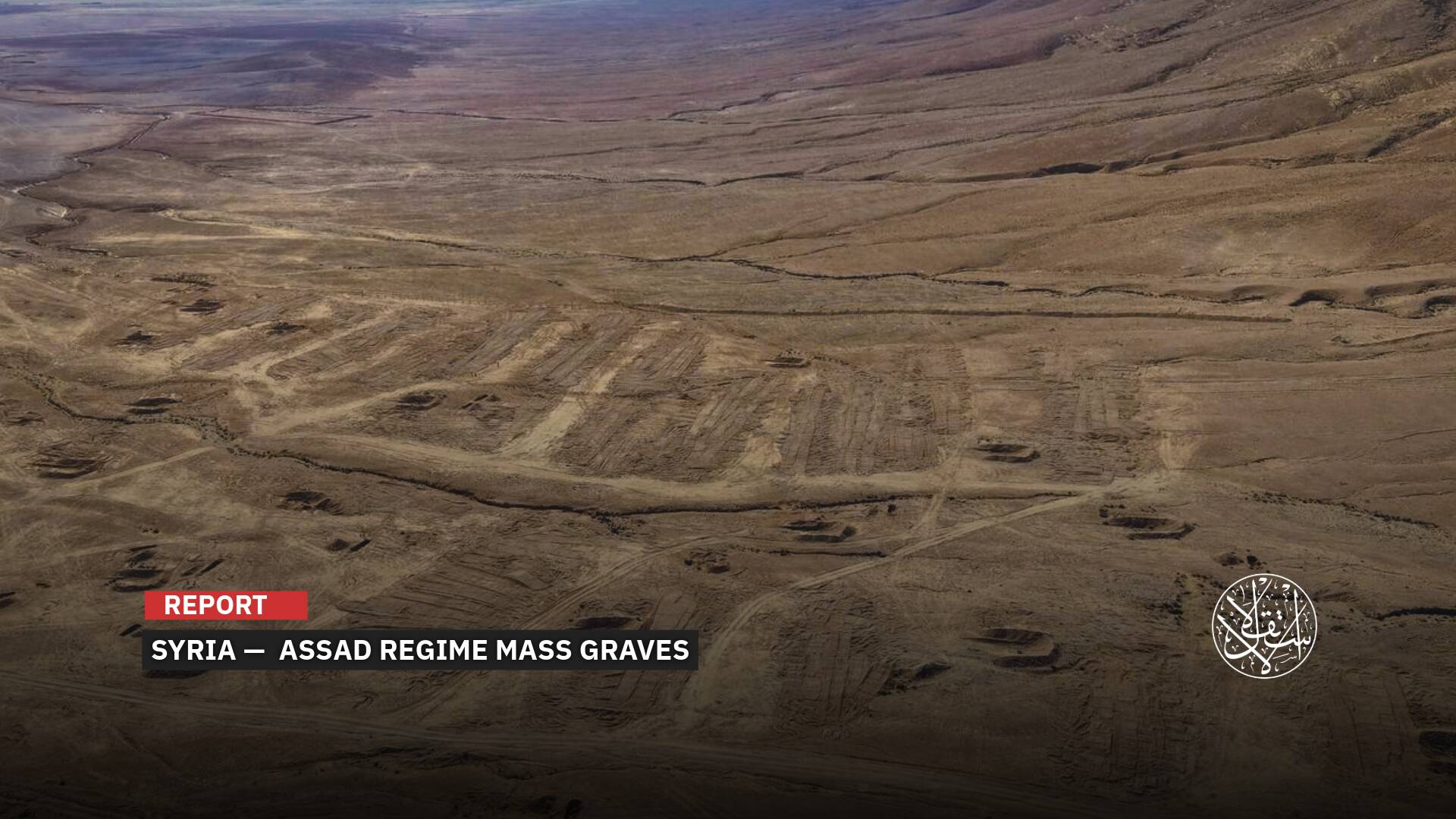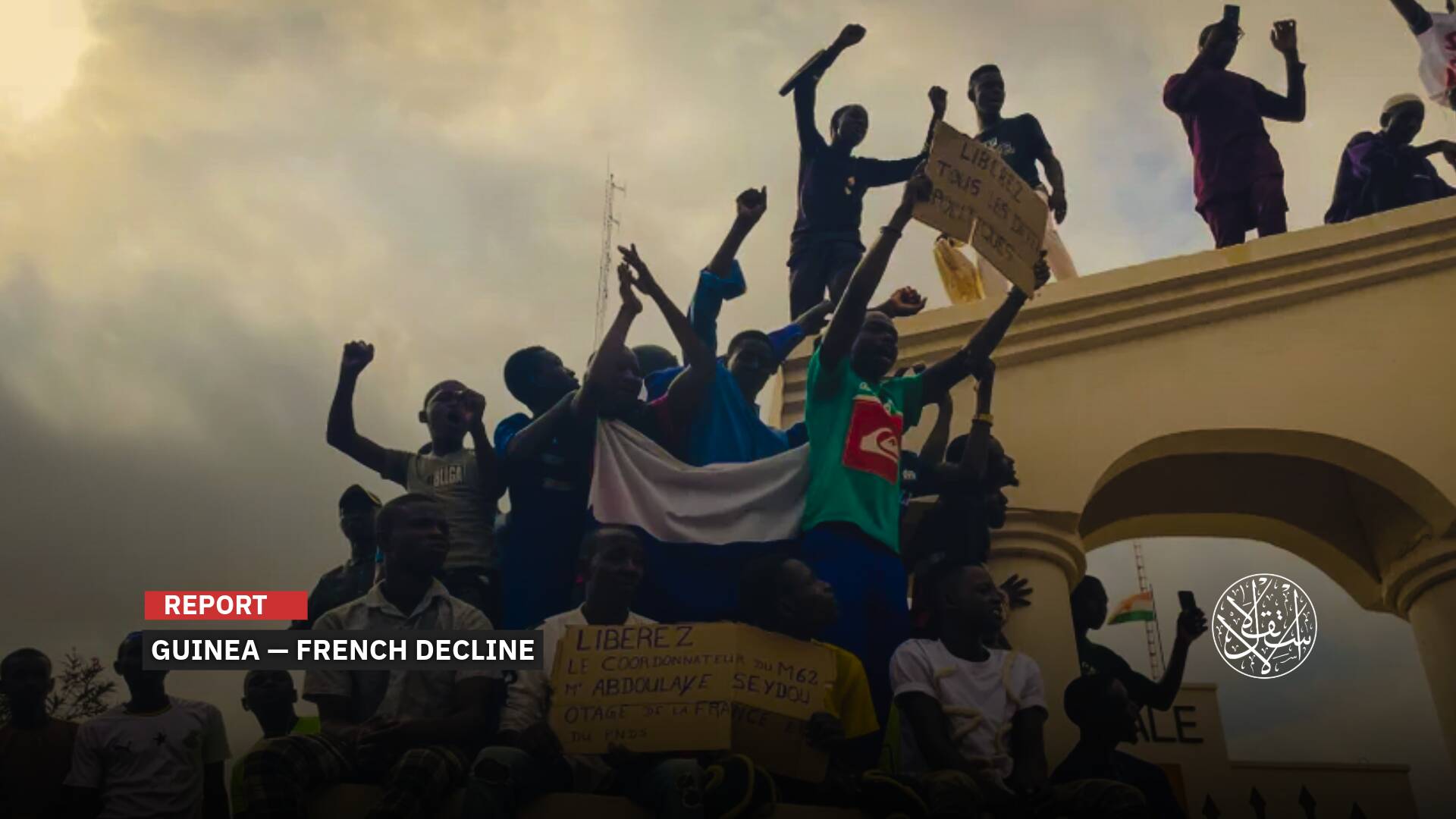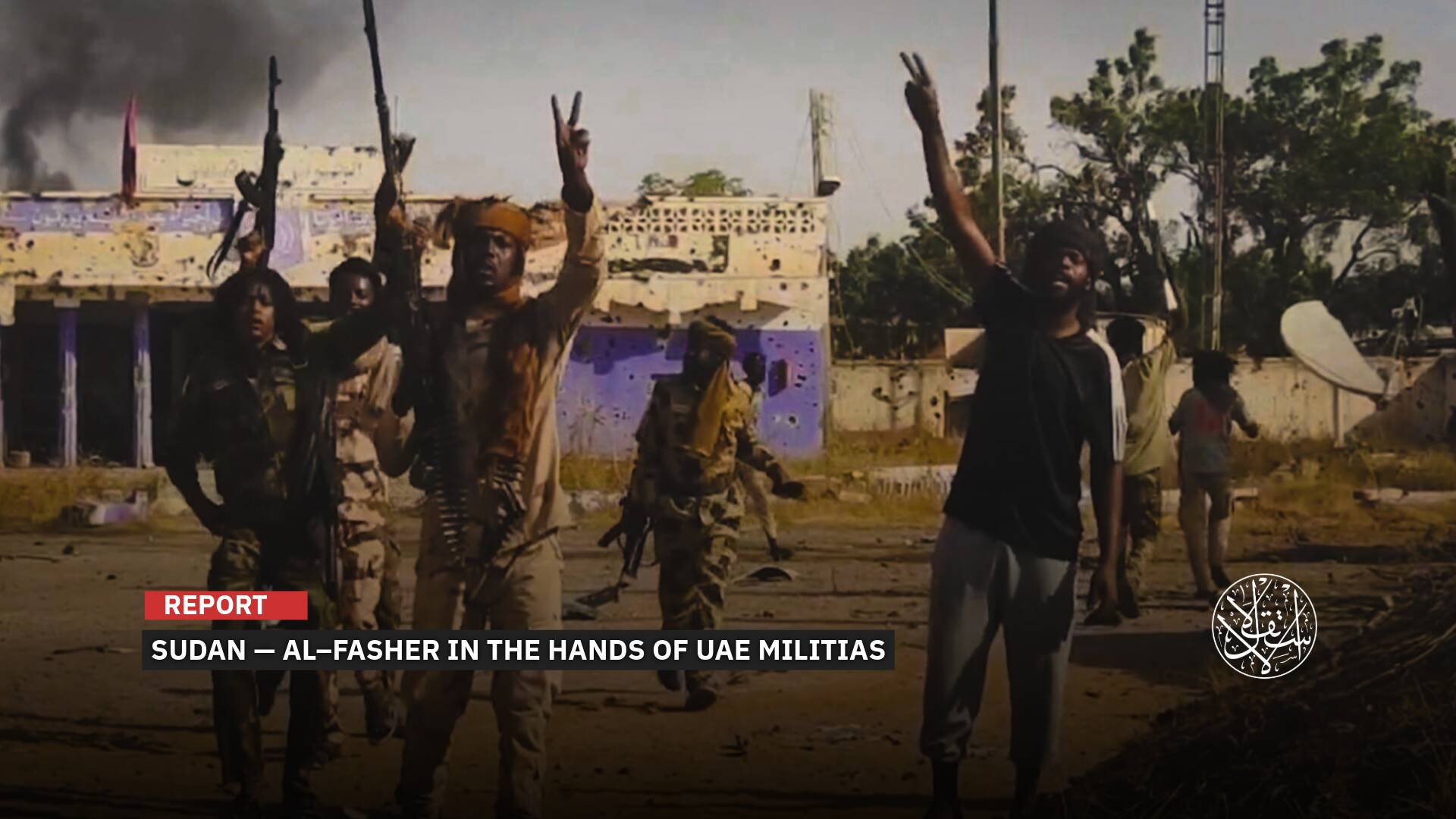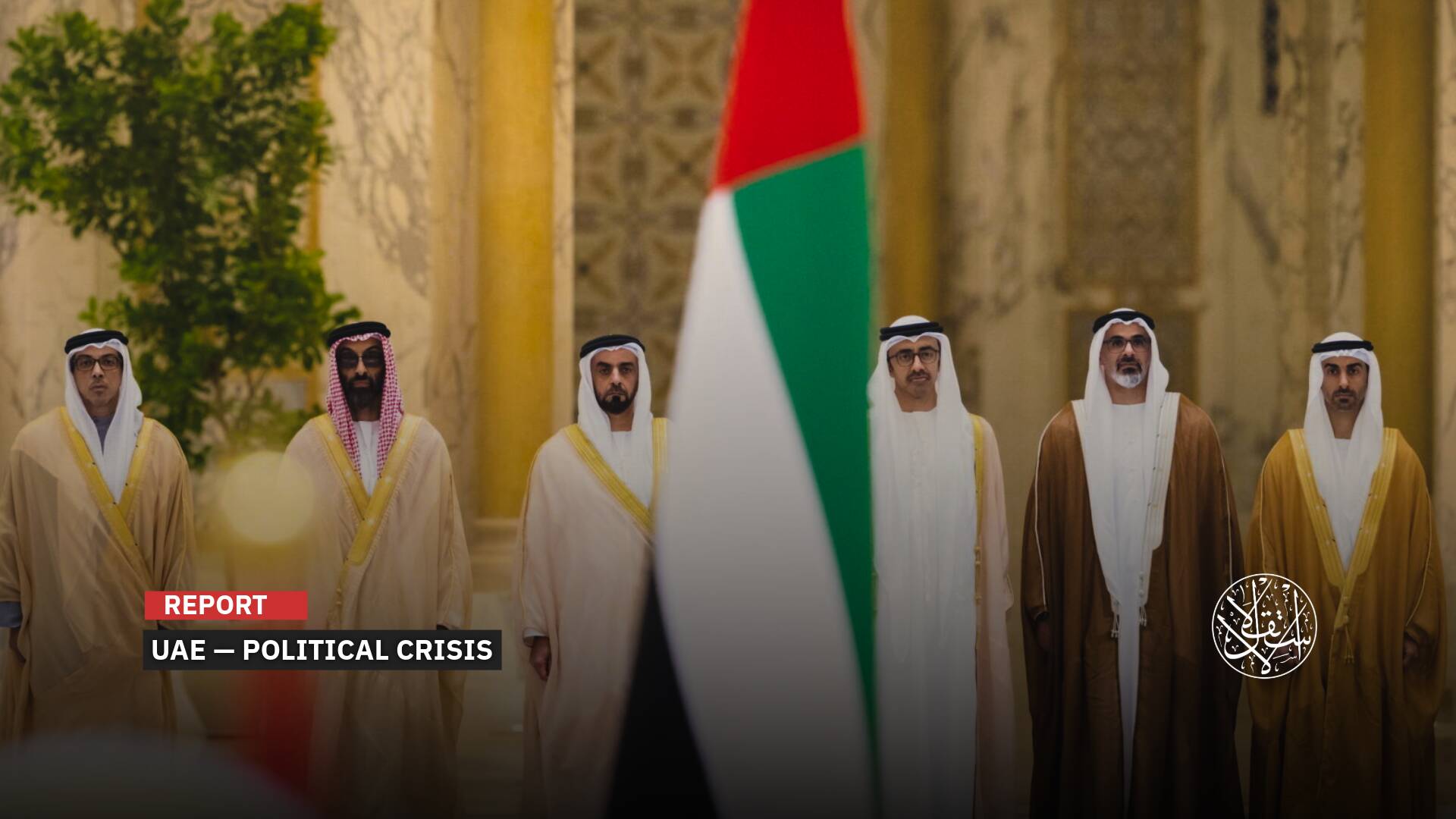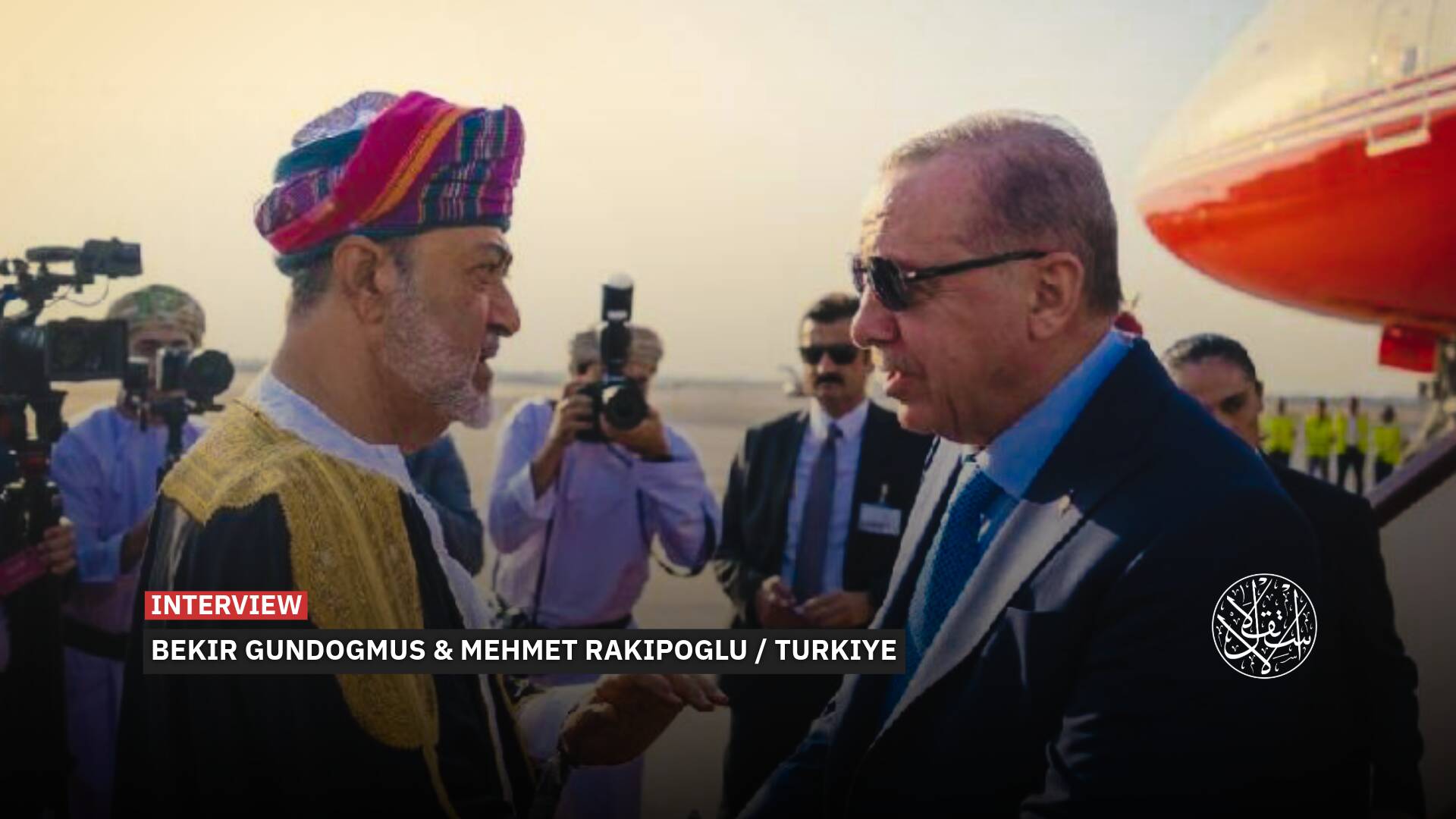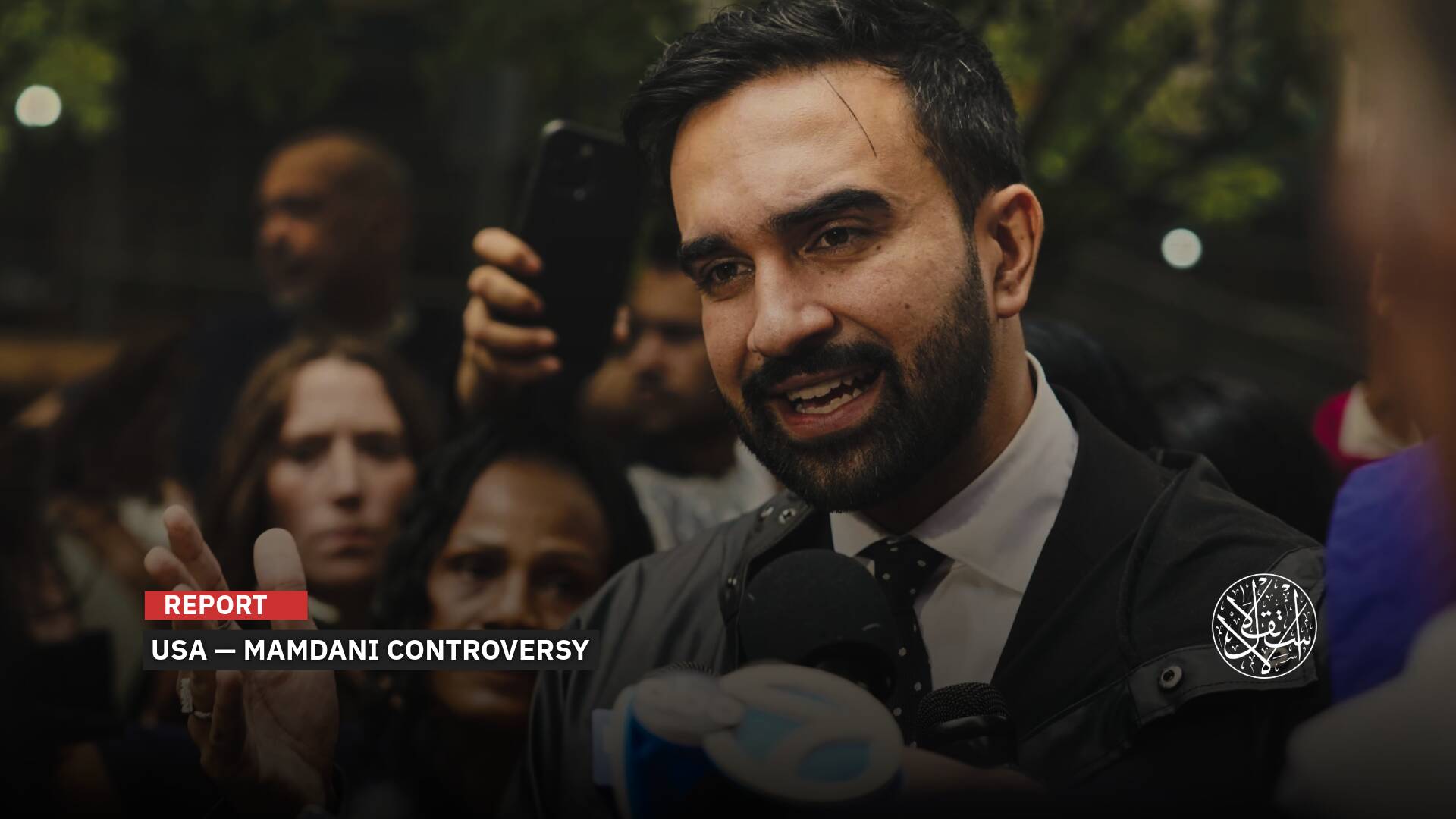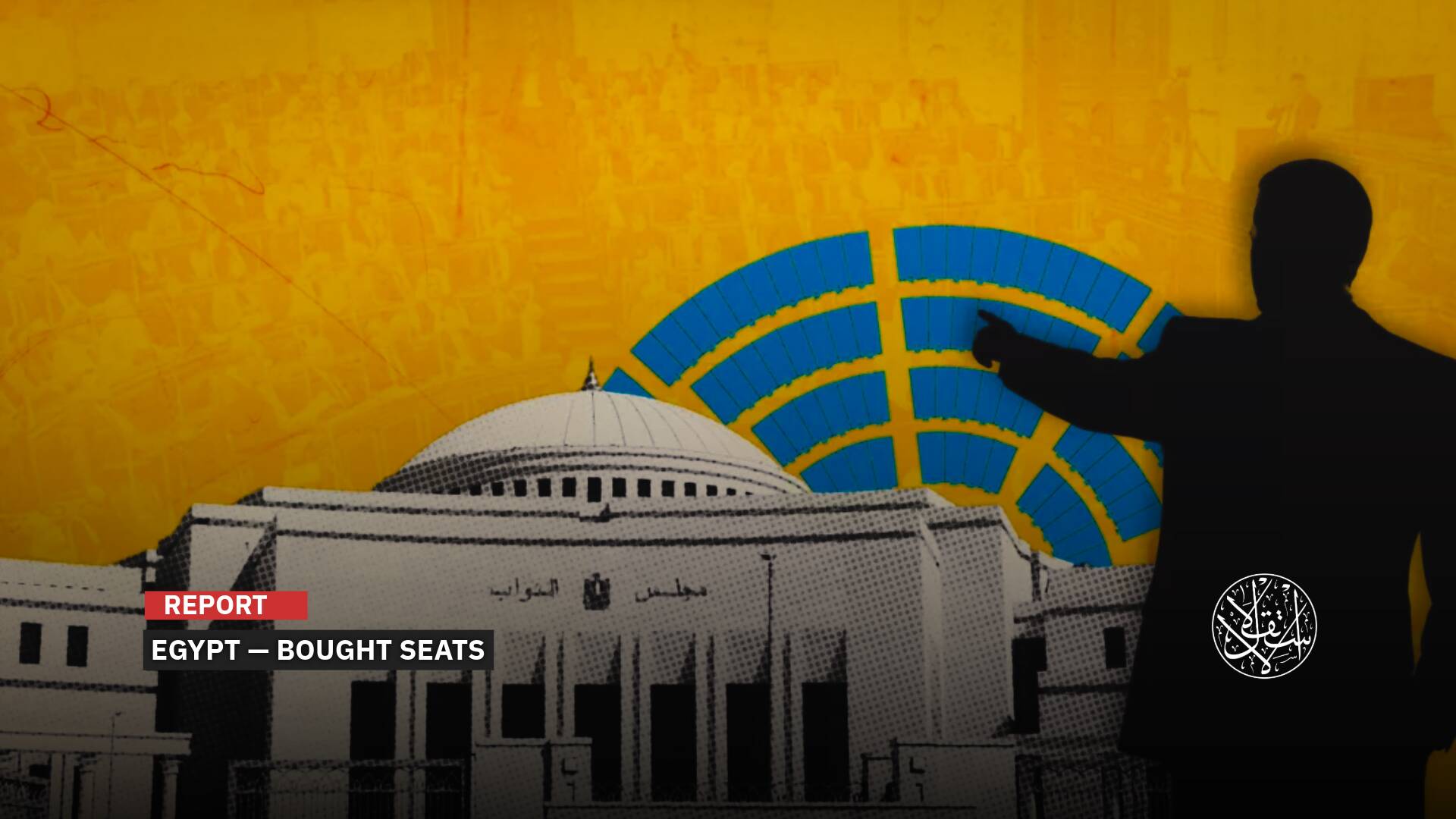Jordan Signals Support for Syria's Rebuilding and Security

Jordan's shift came after multiple Gulf and Western visits to Damascus.
In a swift shift in Jordan's stance on the changes unfolding in Syria, Jordan's Foreign Minister, Ayman Safadi, visited Damascus on December 23, 2024, where he met with the leader of the new Syrian administration, Ahmed al-Sharaa, expressing his country's willingness to offer assistance.
This shift in position followed a period of caution from Amman, most notably evident during its hosting of the "Aqaba Conference" on December 16, 2024, which was met with widespread criticism from Syrian figures who viewed it as an attempt to impose oversight on Syria's new administration.

A Jordanian Message
On December 23, 2024, Jordan’s Foreign Minister, Ayman Safadi, met with Ahmed al-Sharaa, the head of Syria’s new administration, in Damascus.
It marked the first visit by a senior Jordanian official since the ousting of Bashar al-Assad’s regime on December 8, 2024.
Following the talks, Safadi announced “Jordan stands by the brotherly Syrian people as they rebuild their homeland - a free, safe and independent country, free from terrorism and exclusion, where all Syrians can participate in shaping their future and protecting their rights.”
The Jordanian minister emphasized that he brought a message to Damascus of Jordan's commitment to stand by Syrians in building their state.
Safadi expressed support for “a government that represents all spectrums in Syria,” as well as for “the drafting of a new constitution.”
Safadi also noted that, during his discussions with al-Sharaa, he had sensed a shared desire to create a country where every Syrian could feel secure and equal.
He highlighted the importance of Syrian-Jordanian relations and stressed the new administration's eagerness to cooperate.
The talks, Safadi added, underscored the need to build a free nation, free from terrorism, that protects the rights of all Syrians.
According to Al-Estiklal, Safadi said "We discussed the issue of terrorism and pledged to stand together against it, as it poses a threat to us all."
Safadi pointed out that both sides agreed to establish mechanisms for working together to address issues that would help Syria, “stress[ing] the importance of ensuring Syria's safety and stability and creating conditions for the safe and dignified voluntary return of refugees so they can contribute to the country's reconstruction.”
According to Jordan News Agency, “Safadi warned against any attacks on Syria's sovereignty and security, particularly the ongoing Israeli incursions into Syrian territory, which he described as a new form of occupation, urging the international community to exert pressure on Israel.”
Safadi reiterated that “Jordan hosts 1.3 million Syrians, with only 10% residing in refugee camps, while the rest are spread across the Kingdom.”
He also highlighted that approximately 250,000 Syrian children had been born in Jordan, and that 155,000 Syrian students have been enrolled in schools since the start of the conflict in 2011.
He stressed the importance of Syria becoming safe and stable, with conditions in place for the voluntary, dignified, and secure return of refugees, so that they too can contribute to the country’s rebuilding efforts.
The day before, Jordan’s Minister of Government Communication, Mohammad al-Momani, confirmed in a press conference that Jordan had sided with the will of the Syrian people, describing the country’s stance on the events in Syria as "balanced, rational, and national."
Imposing a Protectorate
Jordan's stance comes after criticism from Syrian figures directed at a conference held by the Arab Ministerial Contact Committee in the Jordanian city of Aqaba on December 16, which called for a comprehensive Syrian-Syrian political transition process, under the auspices of the United Nations and the Arab League.
The meeting was attended by members of the Arab Ministerial Contact Committee, which includes Jordan, Saudi Arabia, Iraq, Lebanon, and Egypt, alongside the Secretary-General of the Arab League, Ahmed Aboul Gheit.
Foreign ministers from Qatar, the UAE, and Bahrain, as well as Turkiye, were also present.
Representatives from Germany, France, the United Kingdom, and the United States attended, along with the European Union's High Representative for Foreign Affairs and Security Policy, Josep Borrell, and the UN Special Envoy to Syria, Geir Pedersen.
The Aqaba final statement called for:
"Supporting the role of the UN envoy to Syria and requesting the UN Secretary-General to provide him with all necessary capabilities and begin work on establishing a UN mission to assist Syria in sponsoring the transitional process and assisting the brotherly Syrian people in achieving a political process led by the Syrians in accordance with Resolution 2254.”
“Absolute solidarity with the Syrian Arab Republic in protecting its unity, territorial integrity, sovereignty, security, stability and the safety of its citizens.”
However, the outcomes of the Aqaba meeting were met with criticism from various Syrian political figures, particularly regarding the final statement's call for the transition to a new authority and constitution to be under UN supervision and in line with Resolution 2254.
Critics argued that the overthrow of Bashar al-Assad’s regime had nullified the implications of UNSC Resolution 2254, explaining that the foundational terms of the political contract had ended—meaning the opposition had transitioned into power, the regime had collapsed, and thus the resolution's terms were no longer applicable.
One of the most prominent critics of the Aqaba meetings was political thinker and former president of the Syrian National Council, Burhan Ghalioun.
“Holding the Contact Committee meeting in Aqaba, with the participation of countries that have not hidden their support for the Assad regime, rather than in a liberated Damascus with the participation of Syrians, does not bode well and does not reassure the committee's intentions,” Ghalioun noted.
In a post on X on December 15, Burhan Ghalioun, a leading Syrian opposition figure, cast doubt on the intentions behind the Aqaba meetings, stating, "The meeting suggests an intent to impose a protectorate and appears much more like a conspiracy than a desire to show solidarity and provide support to Syrians."
In a similar vein, U.S.-based political researcher Radwan Ziadeh likened the outcomes of the Aqaba meetings to "international guardianship over Syria."
"The Aqaba statement places Syria under the supervision of the United Nations. If Russia agrees to and supports this statement—which is likely—it could become a new Security Council resolution, directing the entire transitional phase in Syria's future," Ziadeh posted on X.
The UN Security Council adopted Resolution 2254 in December 2015, calling for peace talks between the regime and the opposition, and emphasizing that "the Syrian people shall determine the future of their country."
The UN resolution called for the formation of a transitional government and the holding of elections under UN supervision, while demanding an immediate cessation of attacks on civilians.
However, it was not implemented due to the rejection of the ousted president, Bashar al-Assad.

Jordanian Interests
Regarding the shift in Amman's position, Jordanian writer and political analyst Hazem Ayyad explained that "Jordan became wary of the rapid changes in Syria, as they unfolded in a remarkably short period and at an unexpected moment, following the openness previously exhibited by the former Syrian regime towards the Arab world."
"The swift military offensive by the Syrian opposition, which overthrew the former Syrian regime, disrupted both the regional and international landscape. It certainly unsettled Jordan's stance as well, which went through a phase of cautious restraint and close monitoring of developments and events in Syria," Ayyad told Al-Estiklal.
The Jordanian expert emphasized that his country had been closely monitoring "the positions of regional powers, particularly the United States."
This, he explained, helps explain the degree of caution and heightened vigilance, which was reflected in the Aqaba meeting, where around 13 points were outlined, including UN Resolution 2254.
Ayyad further explained that after two weeks, Jordan began shedding its reservations and embracing a more open stance, particularly after the arrival of diplomatic envoys from both Arab and Western countries to Syria, and following reassuring messages from Damascus, which indicated the new Syrian opposition’s ability to maintain significant control over security.
"Jordan began to show a significant shift towards openness, driven by these regional and international developments, though its actions were less of an initiative and more of a response to the changing Arab stance, especially from Saudi Arabia, Qatar, and the Gulf states, followed by the US position, which also saw a delegation visit Damascus."
"There are numerous shared interests between Jordan and Syria, which represent the true driving force behind Jordan's engagement with Damascus, pushing strongly to overcome the reservations stemming from the rapid transformations in Syria and the region—chief among them, securing and controlling the borders and maintaining stability in southern Syria," Ayyad noted.

According to Ayyad, another key interest is "countering Israeli movements that threaten the Yarmouk Basin and the Syrian-Jordanian border. These could sever ties and disrupt the flow of goods between the two sides if Israel’s incursions into Syrian territory continue."
The political analyst also pointed to the economic dimensions of Jordan's interest in Syria, noting the significant trade volumes and transit routes between the two countries.
"Jordan views Syria as a gateway to Lebanon, Turkiye, and even Europe, alongside the critical issues of Syrian refugees, reconstruction, and the urgency of opening channels for investment in Syria's rebuilding process," Ayyad stated.
Ayyad believes that Jordan is capable of coexisting with a political system in Syria that might lean towards Islamism.
“Jordan has managed to coexist with both the Syrian and Iraqi Ba'ath parties, despite their influence in Jordan's social environment, suggesting that such a shift in Syria would not be a barrier to furthering relations.”
Another significant area of cooperation between Jordan and the new Syrian administration is security, particularly regarding the issue of smuggling, especially the trafficking of drugs. "Many factions of the previous Syrian regime benefitted from the drug trade," Ayyad noted.
Under Bashar al-Assad's regime, Syria became a key hub for the production and smuggling of Captagon, a highly addictive amphetamine, which was trafficked into neighboring countries such as Jordan, Lebanon, and Iraq, and even into the Gulf markets.
Jordan has been one of the most active players in combating the trade of Captagon, as the country has been severely affected by the phenomenon.
In recent years, Jordanian authorities have reported seizing millions of smuggled pills at the Syrian border.
Sources
- Al-Safadi: Jordan-Syria Agreement to Combat Drug and Weapon Smuggling from Syria [Arabic]
- Al-Safadi from Damascus: Jordan Supports Syria's Stability and Rejects Israeli Incursions into Its Territory [Arabic]
- Al-Safadi Confirms Jordan's Support for the Transitional Process in Syria to Al-Sharaa [Arabic]
- Al-Momani Describes Jordan's Position on Developments in Syria [Arabic]
- The Fall of Assad and the Destruction of Hezbollah: How Will It Affect the Drug Trade in the Region? [Arabic]
- Foreign Minister, Commander-in-Chief of New Administration in Syria talk ties


